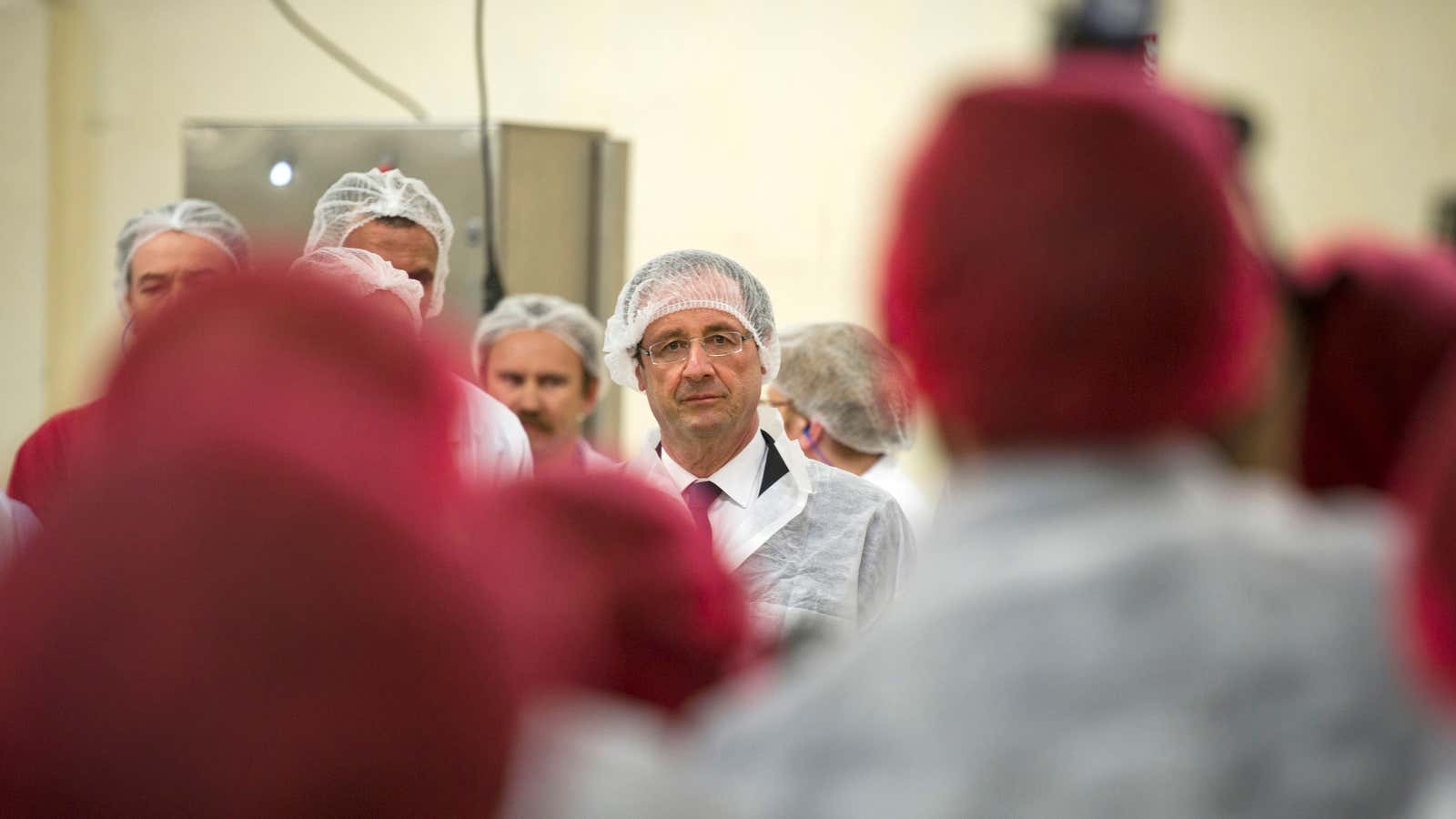The ongoing trans-European scandal in which horse meat was passed off as beef in frozen meals sold across the continent is prompting retailers, suppliers and regulatory agencies across Europe to point fingers and proclaim their own innocence, echoing the blame game still unfolding in the wake of Europe’s debt crisis.
Britain’s environment minister, Owen Paterson, called the scandal a “conspiracy against the public,” while France’s minister for consumer affairs, Benoit Hamon, called it “a fraud” which he estimates netted its perpetrators (link in French) around €300,000.
The tenebrous supply chain described by Hamon (French) illustrates the uniquely European nature of the scandal: “The Luxembourg supplier Comigel received its produce from the French company Spanghero, whose parent, Poujol, acquired its frozen meat from a Cypriot trader, who had subcontracted the order to a Dutch trader who in turn sourced his meat from a horse butcher in Romania.” Romania has been sending many more horses to the slaughter house in recent years, since the government began enforcing a ban of horses on Romanian roads.
The deceit at the heart of the scandal was enabled in part by EU regulation, which, to encourage the free circulation of goods within the European common market, watered down the regulatory powers of individual member states and vested the ultimate responsibility for food controls with food businesses themselves. Article 30 of Europe’s food safety regulations (pdf, p. 3) states, “A food business operator is best placed to devise a safe system for supplying food and ensuring that the food it supplies is safe; thus, it should have primary legal responsibility for ensuring food safety.”
Sebastián Melchor, a Brussels-based partner at the law firm KL Gates, who specializes in European food law, said that since the regulations were passed in 2002, there has been a legislative shift toward self-regulation by food businesses. Traceability—maintaining paper records of where food comes from, and where it goes—became the responsibility of food suppliers, while physical inspections turned into a responsibility of the EU, which issued guidelines for food inspections while leaving enforcement up to the member states. Melchor said, “the argument could be made that because you had more self regulation, [the member states] thought they could carry out fewer inspections.”
The principal regulatory regime governing food safety across the EU (pdf, p. 4-5 and 8) is a system known as Hazard Analysis and Critical Control Points (HACCP), which favors a greater reliance on paper trails at the expense of physical inspections during processing. For instance, under the HACCP regime, food inspectors might concentrate on auditing paperwork inside the offices of the companies up for inspection rather than rigorously testing the companies’ products. That is why, as Richard North, a British political commentator who writes about European politics, pointed out, there is more home-grown organic chicken “sold” in London than is actually produced in the entire United Kingdom.
The head of Romania’s food industry lobby said that importers must have known that the meat in question was not beef, since horsemeat has “a specific taste, color, and texture.” But given the emphasis on paper trails, and the uneven and discretionary nature of physical inspections, labels and paperwork might have mattered more to suppliers and supermarkets than “taste, color, and texture.” As European trade barriers have been reduced over the years and physical inspection became detached from local governments and handed off to European authorities, who in turn entrusted food suppliers with the bulk of responsibility, it would be easy for fraud to have flourished in between the regulatory cracks.
